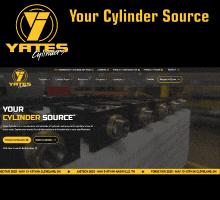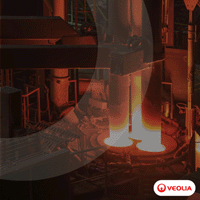Simetal Merim Dry-Type Dedusting Plant to be Installed at Kardemir in Turkey
09/18/2012 - The Turkish steelmaker Kardemir has ordered a Simetal Merim dry-type dedusting plant from Siemens VAI Metals Technologies.
The Turkish steelmaker Karabük Demir Celik Sanayi ve Ticaret A.S. (Kardemir) has ordered a Simetal Merim dry-type dedusting plant from Siemens VAI Metals Technologies. In comparison to conventional dedusting plants, the Simetal Merim (maximized emission reduction and energy recovery in ironmaking) process increases energy recovery by roughly 25% in the top-gas turbine. An innovative centrifugal separator improves the separation of the recyclable dust fraction. The dust recycling process is simplified significantly. Treatment systems for water and sludge are not necessary. The new dry-type dedusting plant will be installed to clean the top gas from a new blast furnace at Kardemir and is scheduled to go into operation in mid 2013.
The long product manufacturer Kardemir is currently erecting at the Karabük site a new blast furnace with an interior volume of 1,650 cubic meters and an annual production capacity of circa 1.2 million tons. In order to achieve optimum cleaning of the top gas and efficient separation of the dust into usable and non-usable portions, Kardemir decided for the Merim plant. Siemens is responsible for the basic and detail engineering of the plant and will deliver all key components. The plant is designed as a two-stage dry-type dedusting system and engineered for the cleaning of up to 400,000 Nm3 of top gas per hour. Coarse dusts are separated in a specially designed centrifugal separator (cyclone), after which the fine dust is collected in fabric filters. The Merim plant reduces the total dust content in the offgas to less than three milligrams per Nm3.
As compared to conventional wet-type dedusting plants, the Merim solution harbors a number of advantages, one of which being that neither wastewater nor sludge is accumulated. Water or sludge treatment is therefore completely unnecessary. This reduces the space requirements of the entire system and minimizes the investment costs. The pressure drop and temperature loss in the top gas are also significantly minimized. This makes it possible to increase the energy output in the top-gas turbines by roughly 25%. The new cyclone also improves the separation of recyclable iron-containing dust fractions from the waste fractions. Roughly 85% of the dust is separated in the cyclone, where the separation efficiency of the usable fraction reaches 90 percent. This fraction can be used, for example, in the sinter plant. Dust with a high fraction of heavy metals, such as zinc, are efficiently separated and can be treated in different processes.
Computer animation of a Merim dry-type dedusting plant designed and engineered by Siemens:

The Siemens Industry Sector (Erlangen, Germany) is the world’s leading supplier of innovative and environmentally friendly products and solutions for industrial customers. With end-to-end automation technology and industrial software, solid vertical-market expertise, and technology-based services, the Sector enhances its customers’ productivity, efficiency, and flexibility. With a global workforce of more than 100,000 employees, the Industry Sector comprises the Divisions Industry Automation, Drive Technologies and Customer Services as well as the Business Unit Metals Technologies.
The Metals Technologies Business Unit (Linz, Austria), part of the Siemens Industry Sector, is one of the world’s leading life cycle partners for the metallurgical industry. The Business Unit offers a comprehensive technology, modernization, product and service portfolio as well as integrated automation and environmental solutions covering the entire lifecycle of plants.



.png?lang=en-US&ext=.png)




